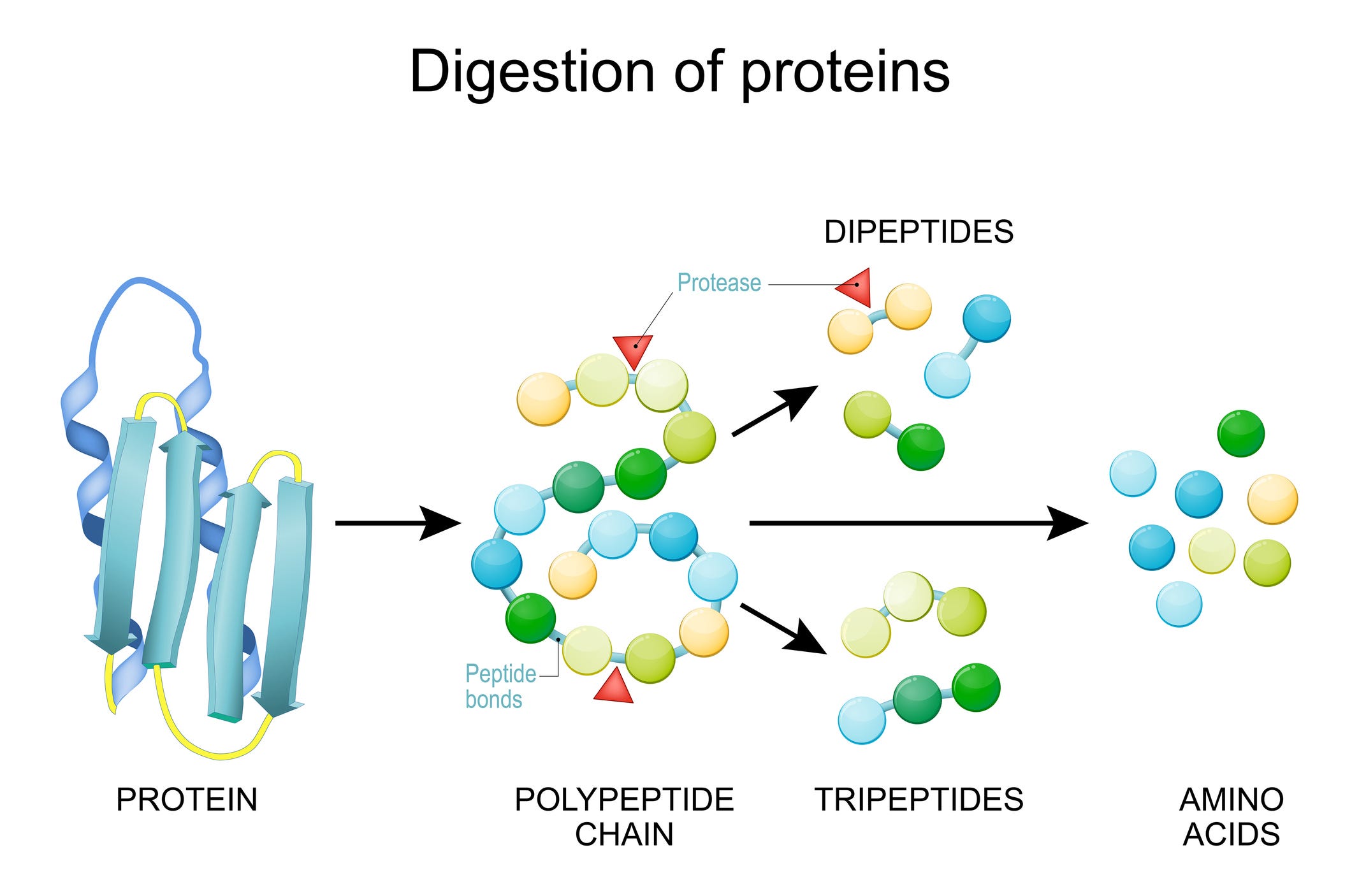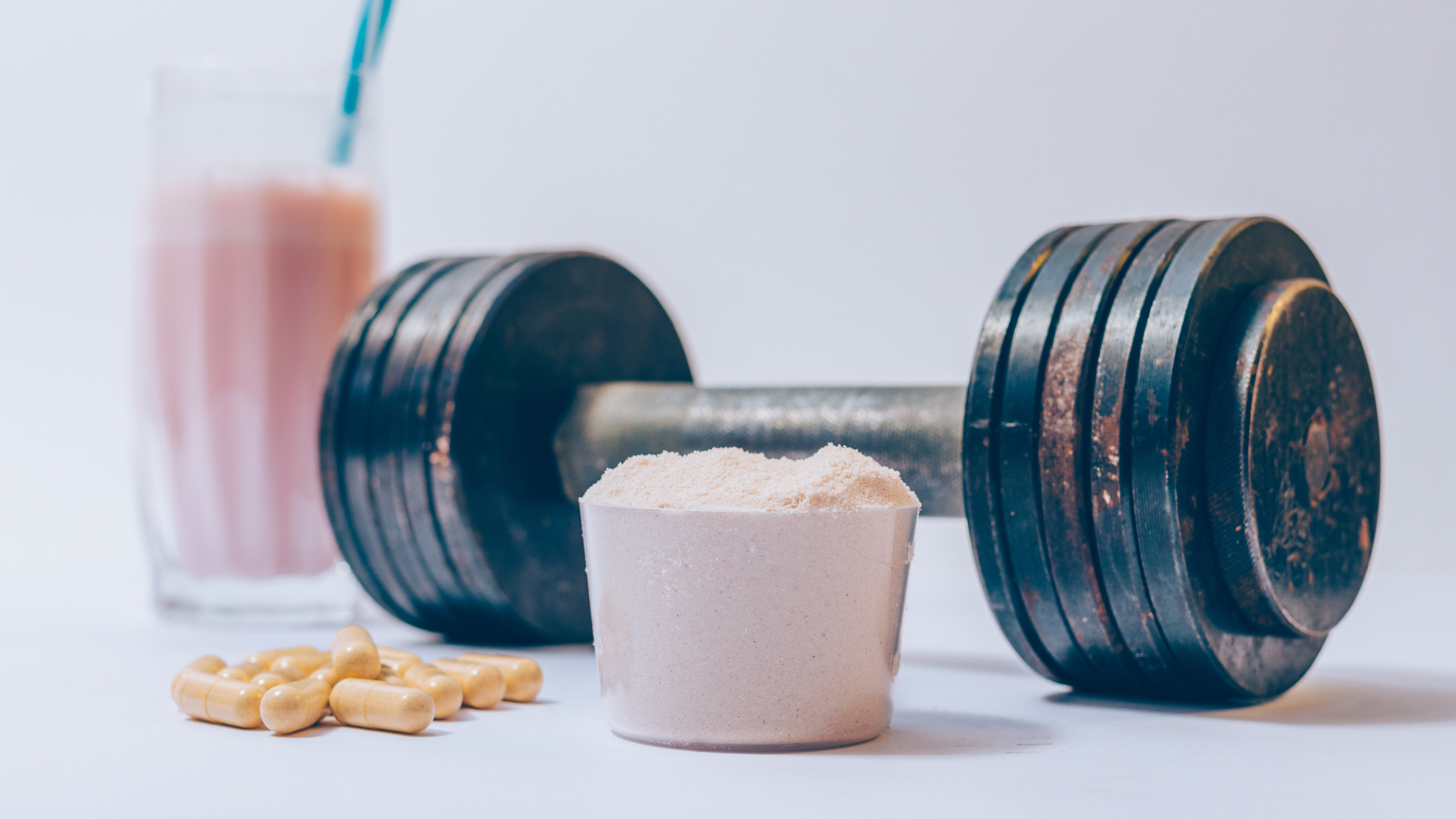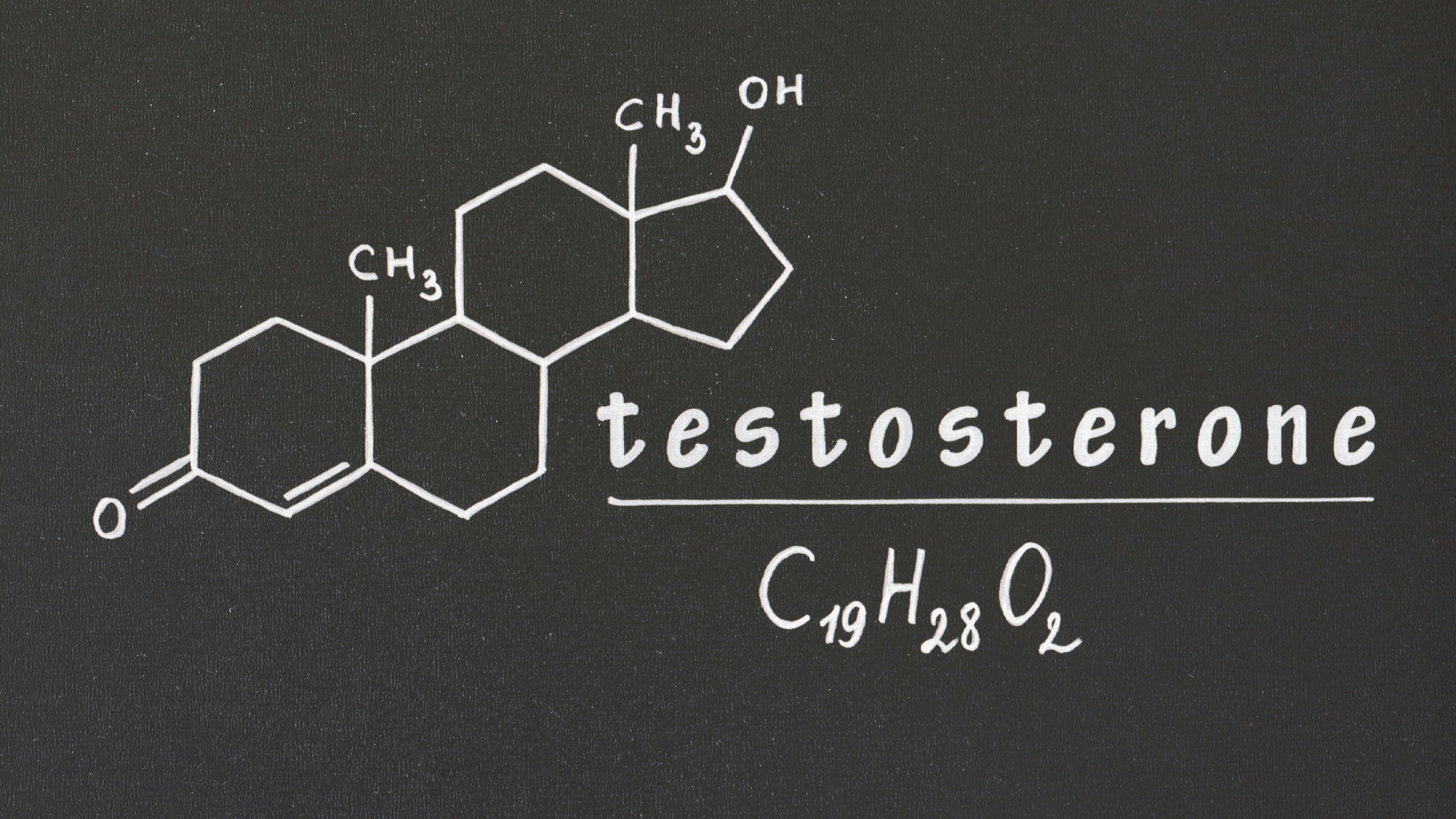
Inflammation is a complex and natural defense mechanism of the body that aims to protect us from infections, injuries, and harmful stimuli. While it plays a crucial role in the healing process, chronic inflammation can be detrimental to our health. Understanding the underlying causes of inflammation can pave the way for proactive steps towards a healthier life.
What can you recommend as a practitioner to help your clients manage these common stressors and mitigate risks for long term health issues?
Read further to discover more about how phyto-proteases can optimize your client’s health strategies!
By Jenny Perez, BSc, Herbal Sciences
Proteases – Nature's Essential Enzymes
Today, we delve into the remarkable world of proteases, nature's powerful enzymes that play a pivotal role in breaking down complex proteins into smaller peptides and amino acids. These incredible enzymes, also known as proteolytic enzymes, are vital for numerous biological processes in all living organisms, including us, humans. As you may already know, proteases are key players in digestion, breaking down dietary proteins into amino acids, which our bodies utilize for energy and muscle building.1 Without these enzymes, proteins remain too complex for the body to handle, leading to malabsorption and uncomfortable symptoms like gas, stomach pain, bloating, and nausea.
The Challenge of Functional Gastrointestinal Disorders (FGIDs)
Functional gastrointestinal disorders (FGIDs) present a significant challenge, affecting around 20% of the global population, with women and elderly individuals being particularly susceptible.2 These disorders encompass a wide range of upper and lower gastrointestinal symptoms, such as gastric reflux, stomachache/dyspepsia, delayed gastric emptying, nausea, vomiting, irritable bowel syndrome (IBS), and inflammatory bowel disease (IBD).3 The symptoms can cause considerable discomfort and impact one's quality of life.
Embracing Plant-Based Enzymes for Digestive Support
One of the key factors contributing to FGIDs is increased intestinal permeability, commonly known as "leaky gut." This condition has been linked to inflammatory bowel disease (IBD), irritable bowel syndrome (IBS), and autoimmune disorders. In addressing this challenge, the power of plant-based proteolytic enzymes, or phyto-proteases, has been harnessed to support optimal absorption of dietary proteins and alleviate mild gastrointestinal discomfort.4
Cysteine proteases, such as bromelain, papain, and actinidin, are exceptional phyto-proteases known not only for enhancing protein digestion and assimilation but also for delivering inflammation-modulating effects to the gastrointestinal tract and systemically post-digestion.1 Clinical evidence has shown the effectiveness of using a combination of these plant-based enzymes, including bromelain and papain, to improve symptoms and modulate inflammatory responses in patients suffering from FGIDs of the lower gastrointestinal tract.
Moreover, these phyto-proteases have shown potential in addressing gut dysbiosis, an imbalance of gut microflora often associated with enteropathogens or antibiotic use. This imbalance, coupled with inflammation, can lead to leaky gut syndrome, and it is also linked to conditions like small intestine bacterial overgrowth (SIBO) and small intestine fungal overgrowth (SIFO). Phyto-proteases have demonstrated the ability to support the prevention of diarrhea caused by common enteropathogens related to food-borne and water-borne illnesses.5
The Link Between FGIDs and Enzyme Deficiency
Extensive research has revealed an intriguing link between functional gastrointestinal disorders (FGIDs) such as IBS and functional dyspepsia (FD) and low levels of pancreatic enzymes when compared to healthy individuals.4 While the exact relationship between pancreatic enzyme deficiency and FGIDs requires further study, it is plausible that impaired digestion and absorption of nutrients could play a role in triggering symptoms in some patients with these conditions. Supplementing with pancreatic enzymes becomes necessary when the pancreas fails to produce sufficient enzymes for proper digestion of nutrients, especially proteins and fats.
Traditionally, physicians would prescribe antacids and pancreatic lipase enzymes to stabilize enzyme activity, but this approach creates other digestive issues, such as reducing hydrochloric acid (HCl) production in the stomach. A more holistic approach involves the use of pancreatic enzymes alongside plant-based proteolytic enzymes, like bromelain and papain, to stabilize their resilience and allow them to perform their functions effectively. Interestingly, clinical evidence indicates that bromelain/proteolytic enzymes may also support protein absorption in elderly individuals who inherently have lower HCl production and weaker digestive systems.6
Phyto-Proteases: Nature’s Alternative to NSAIDs
We now arrive at the exciting realm of inflammation modulation, where phyto-proteases have shown great promise as a natural alternative to non-steroidal anti-inflammatory drugs (NSAIDs). Excessive or prolonged immune responses can lead to an abundance of pro-inflammatory compounds in the body, setting the stage for a host of health problems. Bromelain, along with other proteolytic enzymes like papain and actinidin, exhibits inflammation-modulating properties that can downregulate the body's pro-inflammatory immune response without causing adverse side effects.
This stands in stark contrast to the risks associated with frequently using over the counter NSAIDs like aspirin, ibuprofen, and naproxen, which can lead to stomach irritation, ulcers, gastrointestinal bleeding, kidney damage, high blood pressure, heart attack, and stroke. Clinical studies have confirmed bromelain’s efficacy in relieving minor muscle pain, strain, or swelling associated with degenerative joint conditions, sports injuries, and postoperative recovery.7 Additionally, ongoing research on papain from papaya (Carica papaya) and actinidin from kiwifruit (Actinidia deliciosa) is revealing similar inflammation-modulating potential.
The Versatility of Proteases Beyond Protein Catabolism
Proteases indeed act as sharp scissors, catalyzing highly specific reactions of proteolytic processing.8 Yet their roles extend far beyond protein digestion and assimilation. Phyto-proteases like bromelain, papain, and actinidin have demonstrated remarkable inflammation-modulating effects throughout the body. These enzymes can modulate protein-to-protein interactions, generate new bioactive molecules, and improve biophotonics, which involves the processing of cell information and communication.
Moreover, phyto-proteases have additional benefits that go beyond their protein-digesting capacities. They contribute to systemic health by regulating an overactive, pro-inflammatory immune response and promoting healthy blood circulation.1 As a result, these proteases facilitate the breakdown of toxic metabolites resulting from oxidative stress, leading to significant detoxification support.
Enzyme Potency Determines Optimal Dosing
As with any enzyme formulation, potency is a crucial factor in determining the appropriate dosage. Enzyme potency is measured by enzymatic activity, which plays the most critical role in enzyme effectiveness. For phyto-proteases like bromelain and papain, the potency is typically measured using the Gelatin Digesting Unit (GDU) and the Papain Unit (PU), respectively.9 The higher the enzymatic activity, the faster the food is digested. When taken orally, most of the phyto-proteases are absorbed intact and have a systemic effect, circulating their beneficial effects all over the body post-digestion.
Unlock the Healing Potential of Phyto-Proteases
While essential for healing, inflammation can become problematic when it becomes chronic. Fortunately, there is a natural and holistic solution to modulate inflammation and optimize digestive health – plant-derived proteases. These powerful enzymes, such as bromelain, papain, and actinidin, play a crucial role in breaking down dietary proteins, promoting optimal absorption, and alleviating gastrointestinal discomfort. Plant-derived proteases have been shown to support the prevention of diarrhea, address gut dysbiosis, and even act as an alternative to NSAIDs for managing inflammation.
As practitioners, it is our duty to educate and empower our clients about the benefits of plant-derived enzymes for functional gastrointestinal disorders and overall inflammation modulation. Integrating phyto-proteases into your treatment protocols offers a targeted approach to your client’s digestive health and overall well-being. Embrace the healing potential of these powerful plant enzymes and unlock healthier digestion while subduing the fire of inflammation. This innovative formulation delivers our Premier Quality difference with evidence-based nutrients that really work!
References
- Mazorra-Manzano, MA. Plant proteases for bioactive peptides release – a review. https://www.tandfonline.com/doi/abs/10.1080/10408398.2017.1308312?journalCode=bfsn20
- Amri, Ezekiel. Papain, a plant enzyme of biological importance – a review. https://www.researchgate.net/publication/279725633_Papain_a_plant_enzyme_of_biological_importance_A_review
- Richardson, David. The nutritional and health attributes of kiwifruit: a review. https://www.ncbi.nlm.nih.gov/pmc/articles/PMC6267416/
- Fikree, Asma. Management of functional gastrointestinal disorders. https://www.ncbi.nlm.nih.gov/pmc/articles/PMC7850201/
- Lopez-Otin, Carlos. Proteases – multifunctional enzymes in life and disease. https://www.ncbi.nlm.nih.gov/pmc/articles/PMC2576539/
- Roxas ND, Mario. The role of enzyme supplementation in digestive disorders. https://pubmed.ncbi.nlm.nih.gov/19152478/
- Association for the Advancement of Restorative Medicine. Pineapple Enzyme (Bromelain). https://restorativemedicine.org/library/monographs/bromelain/
- SORA Laboratories White Paper. GDU and PU Methodologies. https://soralabs.com/wp-content/uploads/2017/04/sora-white-paper.pdf
Jenny Perez is an herbal educator, researcher, and writer who has been immersed in the field of nutrition and botanical medicine for more than 20 years. Jenny has created curriculum, content, and educational materials for Quantum Nutrition Labs, Premier Research Labs, the American Botanical Council, and Bastyr University’s Botanical Medicine Department where she was Adjunct Faculty, Herb Garden Manager, and Director of the Holistic Landscape Design certificate program.









